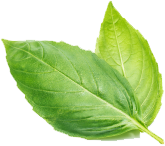
The rose is truly the queen among flowers. Therefore, correctly selected soil is the basis for its development and abundant flowering, as well as how often it will get sick.
Regardless of where the roses will grow – in the garden, in open ground or at home in a pot, the peat nutrient soil should be the same.
The level of acidity is of great importance, which should be moderately acidic with a pH level of 5.5 – 6.5.
The proposed peat soil for roses is light, has a peat composition, allows water to pass through well, and contains mineral components. Completely ready for use for growing roses, freesias, and gerberas.
To plant roses in open ground, it is necessary to do preparatory work. Nutritious peat soil for roses is added to the planting hole at the rate of 3-5 liters per plant. A small mound is made at the bottom of the pit. The roots of rose seedlings are distributed at the bottom. Then carefully fill the hole with prepared soil, starting from the outside to the middle.
They tamp lightly, gradually filling all the voids, not reaching 2-3 cm before the grafting. Water with settled water.
To plant a rose in a pot, you need to pour a layer of drainage expanded clay on the bottom. Place the rose with a good clod of soil and sprinkle with nutritious peat soil without deepening the graft. Lightly compact and pour water at room temperature.
Peat soil for roses can also be used instead of mulch in the fall, pouring it about 10 – 15 cm under the roses. This allows the rose to quietly overwinter. In the spring, loosen and add the added soil to the root system.
During the budding period, peat soil is often added under the roses. This will reduce watering and loosening, as well as improve the properties of the soil.

Choose a professional substrate for your
enterprise for 5 questions.